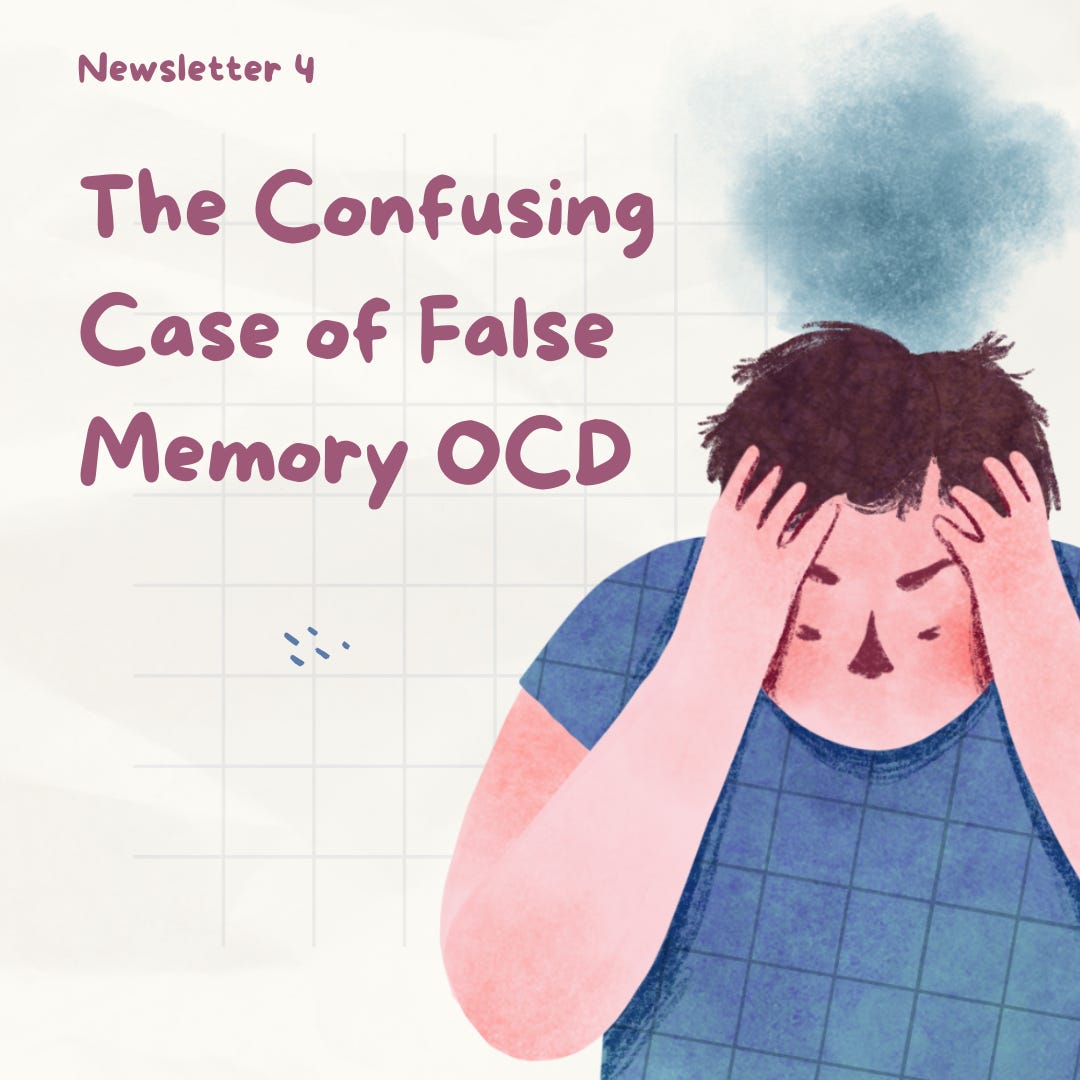The Confusing Case of False Memory OCD
Did Jamie Pay?
Jamie wakes up one morning with a huge smile on his face. He had an awesome time hanging out with friends the night before. They ate a delicious meal at a fancy restaurant downtown.
Suddenly, Jamie is struck with a burst of anxiety.
Did I pay last night?
One of Jamie’s biggest fears is being labeled a thief. So, he takes out his phone and texts his friend, Chris. Chris reassures him that he paid. Jamie lets out a sigh of relief.
Wait. Did I pay for my part of the tip?
He sends Chris another text, only to be reassured again.
Wait. What if he’s lying because he wants to move on from this topic?
Jamie texts Chris again and receives a third confirmation that he paid. So, why does he feel less confident than he did before he picked up the phone?
This is because deep down, Jamie isn’t looking for an actual answer. The uncertainty around whether he paid causes him great anxiety and he’s looking for a way to remove it completely.
Untrustworthy Memories
Jamie has False Memory OCD and as a result, he experiences frequent doubts about past events. To Jamie, these recurrent doubting thoughts are indications that his worst fear of being a thief is true. Jamie figures that if he’s so worried that he didn’t pay, then it must be true. Otherwise, why would he be so worried about it?
These false memories feel real and the more Jamie fixates on them, the more OCD fills in these false memories with even more false information, further convincing him that he is guilty.
Ritualizing to Remember
Jamie does everything he can to find the answer to his payment mystery.
Mental Review
He reviews every single moment of the night he was at the restaurant. He mentally replays when exactly the waiter came over, when the bill arrived, how much the bill was, whether he paid with cash or credit, etc.
Reassurance Seeking
He turns to the friends who were at the restaurant for reassurance. He even resorts to calling the restaurant in order to receive confirmation.
Thought Suppression
He tries to silence the intrusive thoughts. He repeats to himself, “I am not a thief. I definitely paid”. Ironically, the intrusive thoughts only come back stronger and more frequently.
Even after performing all of the rituals above, Jamie’s battle with false memories does not go away. Instead, his brain starts spinning further possibilities of uncertainty, creating new scenarios that start the obsessive-compulsive cycle over again.
The terrifying reality of False Memory OCD is that the more proof of a past event you find, the less confident you’ll be that it actually happened.
Hope
If you’re dealing with False Memory OCD or any type of OCD for that matter, the future might seem bleak. Fortunately, there are several ways to overcome OCD. The gold standard is Exposure and Response Prevention (ERP) therapy.
The idea is that you would prevent yourself from engaging in compulsions after you’re exposed to your triggers. By doing this, you’re teaching yourself a new way to respond. Over time, you’ll get better at resisting the urge to ritualize and will see a noticeable reduction in anxiety when you’re triggered.
Here are some helpful phrases you can say the next time you’re trying to resist ritualizing:
I have to live with the uncertainty.
Analyzing my thoughts will only make things worse.
My obsessions pass when I don’t act on the fear. This one will pass too.
Good Question
What better way to get to know each other than with a good question? Every Friday, I’ll include one of those questions and if you’d like, you can answer by replying to this email or by using the comment button below. Then, I’ll send you my answer. I look forward to getting to know you better!
What’s something your therapist told you that will stick with you forever?
Until next time
Thanks for reading this week! And remember, if you ever have any questions, or suggestions, or want to chat, you can email me or DM me on Instagram or Twitter @orchardjournal.
See you,
Corey



My therapist referenced the “human experience” as response to some of the things we humans deal with. Like, the uncertainty of the meaning of life, or grappling with the idea of death.
This comment has made me think about that in my day to day life. For me, it’s a comforting thought. We are not alone. Many before us have experienced this and many after us will too.